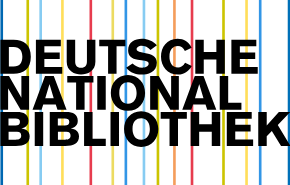EFFECTIVENESS OF LEARNING ENGLISH IN DIFFERENT METHODS
DOI:
https://doi.org/10.55640/Keywords:
English language teaching, interactive technologies, communicative approach, independent learning, innovative learning, language competence.Abstract
This article discusses the methods of learning English using blended learning methods. It analyzes how the combination of traditional and modern pedagogical approaches can increase the effectiveness of the educational process. The advantages of blended learning methods are discussed, including ways to make the language learning process more interesting and effective through a combination of interactive technologies, a communicative approach, and independent learning methods. The article also discusses the role of real-life activities in the formation of language competence.
References
1.Dudeney, G., & Hockly, N. (2012). How to Teach English with Technology. Pearson Education.
2.Richards, J. C., & Rodgers, T. S. (2014). Approaches and Methods in Language Teaching (3rd ed.). Cambridge University Press.
3.Thorne, K. (2003). Blended Learning: How to Integrate Online and Traditional Learning. Kogan Page.
4.Ellis, R. (2009). Task-Based Language Teaching: Theory and Practice. Cambridge University Press.
5.Benson, P. (2011). Teaching and Researching: Autonomy in Language Learning (2nd ed.). Routledge.
6.Reinders, H., & White, C. (2016). Twenty-first Century Language Learning and Teaching. Palgrave Macmillan.
7.Sobirova, G. Z. A., & Topilova, S. M. (2024). CULTURAL LAYER OF A WORD: CONNOTATION AND DENOTATION. PEDAGOGIK ISLOHOTLAR VA ULARNING YECHIMLARI, 6(2), 420-423.
8.Asqarovna, S. G. (2023, October). Professionalism and ELT (English language teaching). In International Scientific and Current Research Conferences (pp. 486-491).
9.Kan, G. (2025). EFFECTIVE USE OF MODERN METHODS IN TEACHING FOREIGN LANGUAGES. International Journal of Artificial Intelligence, 1(1), 898-902.
10.Kan, G. (2025). MODERN METHODS IN TEACHING FOREIGN LANGUAGES: YESTERDAY AND TODAY. Теоретические аспекты становления педагогических наук, 4(4), 14-18.
11.Parhadjanovna, S. S. (2023, October). MASTERING THE ART OF READING: TECHNIQUES AND STRATEGIES TO ENHANCE READING SKILLS. In International Scientific and Current Research Conferences (pp. 482-485).
12.Botirova, D. B., Abdullayeva, M. R., Khaydarov, I. Y., Khaydarova, R. N. A., & Sharofova, S. S. Social Psychological Features of the Process of Professional Stress in Pedagogical Activity. Journal Power System Technology ISSN, 1000-3673.
13.Nurmatov Yorkin Irkinovich, & Ernazarov Fakhritdin Tulkunovich. (2022). THE CONCEPT OF PRONUNCIATION STYLE IN MODERN LINGUISTICS. Journal of Academic Research and Trends in Educational Sciences, 1(7), 188–194. https://doi.org/10.5281/zenodo.6646657
14.Djampulatova, N. M. (2024). Improving the Level of Communication Development of Students. Journal of Higher Education and Academic Advancement, 1(2), 180-185.
Downloads
Published
Issue
Section
License

This work is licensed under a Creative Commons Attribution 4.0 International License.
Authors retain the copyright of their manuscripts, and all Open Access articles are disseminated under the terms of the Creative Commons Attribution License 4.0 (CC-BY), which licenses unrestricted use, distribution, and reproduction in any medium, provided that the original work is appropriately cited. The use of general descriptive names, trade names, trademarks, and so forth in this publication, even if not specifically identified, does not imply that these names are not protected by the relevant laws and regulations.







